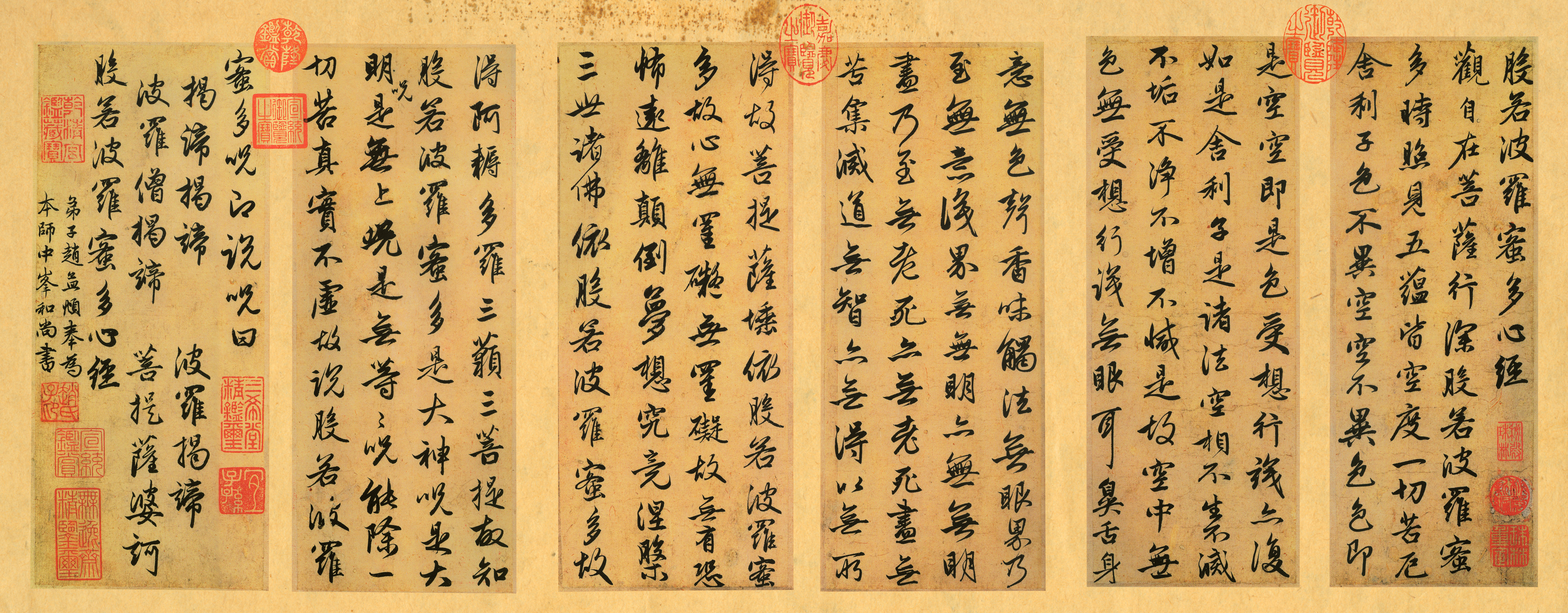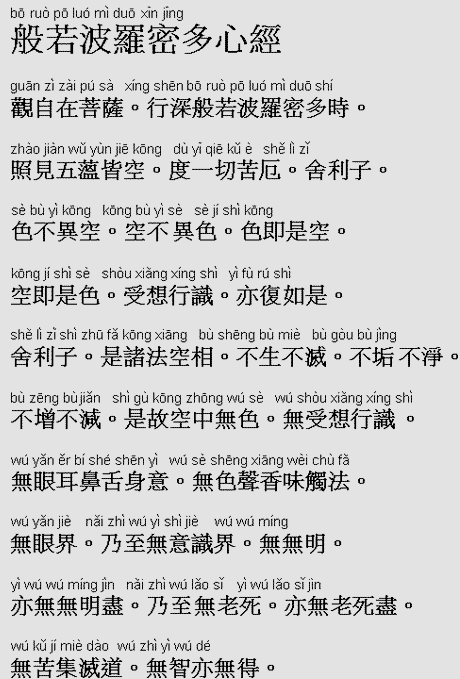Heart Sūtra
The Heart Sutra [Chinese & Pinyin]
The Heart Sutra [English Translation]
-The Prajnaparamita-Hrdaya Sutra-
When Bodhisattva Avalokitesvara practised the deep Prajnaparamita, he saw that the five skandhas were empty; thus he overcame all ills and suffering.
“O Sariputra! Form does not differ from the void, and the void does not differ from the form. Form is the void, and the void is form. The same is true for feelings, conceptions, impulses and consciousness.
O Sariputra, the characteristics of the void is not created, not annihilated, not impure, not pure, not increasing, not decreasing.
Therefore, in the void there are no forms and no feelings, conceptions, impulses and no consciousness: there is no eye, ear, nose, tongue, body or mind; there is no form, sound, smell, taste, touch or idea; no eye elements, until we come to no elements of consciousness; no ignorance and also no ending of ignorance, until we come to no old age and death; and no ending of old age and death.
Also, there is no truth of suffering, of the cause of suffering, of the cessation of suffering or of the path. There is no wisdom, and there is no attainment whatsoever. Because there is nothing to be attained, a Bodhisattva relying on Prajnaparamita has no obstruction in his heart. Because there is no obstruction he has no fear, and he passes far beyond all confused imagination and reaches Ultimate Nirvana.
All Buddhas in the past, present and future have attained Supreme Enlightenment by relying on the Prajnaparamita. Therefore we know that the Prajnaparamita is the great magic Mantra, the great Mantra of illumination, it is the supreme Mantra, the unequaled Mantra which can truly wipe out all suffering without fail.”
Therefore, he uttered the Prajnaparamita mantra, by saying:
“Gate, Gate, Paragate, Parasemgate Bodhi-svaha!”
Chinese text of the Heart Sūtra by Yuan dynasty artist and calligrapher Zhao Mengfu (1254–1322 CE)



